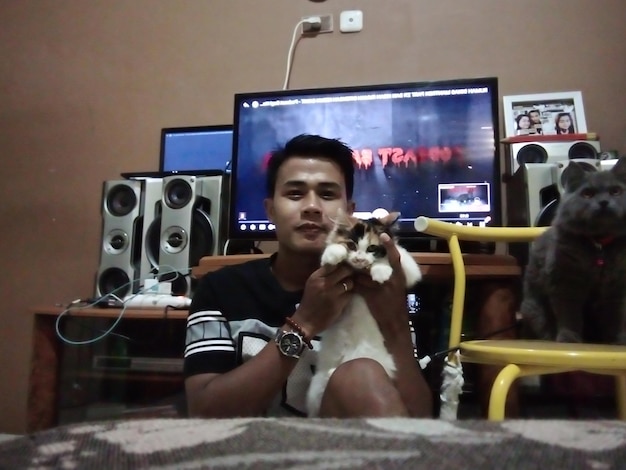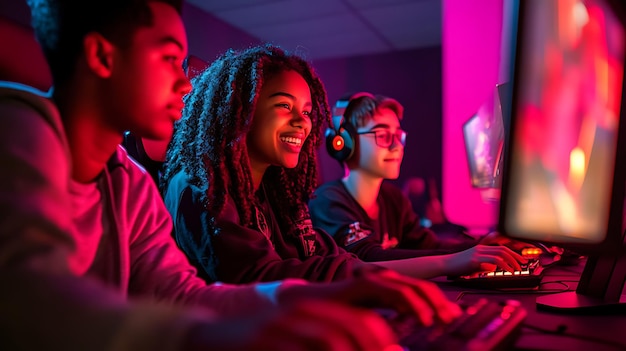
Multiplayer Game Architecture
Design and implement robust multiplayer systems for competitive and cooperative gaming experiences
About This Training Program
This comprehensive program covers network programming fundamentals, client-server architecture, and peer-to-peer implementations. Students learn lag compensation techniques, server authoritative models, and anti-cheat system design through hands-on projects and real-world scenarios.
The curriculum includes matchmaking algorithms, lobby systems, and social features integration. Participants implement real-time synchronization, handle packet loss gracefully, and optimize network traffic for various connection types and player counts.
Suitable for programmers building online games or adding multiplayer to existing projects. The program emphasizes practical implementation alongside theoretical understanding of distributed systems and network protocols.
Career Development Opportunities
Technical Growth
Develop specialized expertise in network programming and distributed systems, enhancing your value within development teams and opening opportunities for senior technical roles.
Portfolio Projects
Complete three substantial projects demonstrating multiplayer implementation skills: battle royale networking, ranked matchmaking system, and cross-platform multiplayer support.
Industry Recognition
Gain practical knowledge recognized by game studios throughout, with curriculum aligned to current industry standards and practices in multiplayer development.
Networking Connections
Connect with fellow developers and industry professionals during the program, building relationships that support ongoing career advancement and collaboration opportunities.
Technical Tools & Technologies
Development Platforms
- Unity networking solutions and Mirror framework
- Unreal Engine replication system
- Photon Engine for real-time multiplayer
Network Protocols
- UDP for fast-paced action games
- WebRTC for browser-based multiplayer
- WebSocket for persistent connections
Testing Tools
- Network simulation for lag testing
- Profiling tools for optimization
- Load testing frameworks
Implementation Methods
- Client-side prediction techniques
- Server reconciliation patterns
- State synchronization strategies
Development Standards & Best Practices
Security Considerations
Learn to implement server-authoritative architecture that prevents common exploits and cheating attempts. The program covers input validation, data sanitization, and secure communication protocols to protect player data and maintain competitive integrity.
Students explore anti-cheat strategies including server-side verification, anomaly detection, and rate limiting. These techniques help maintain balanced gameplay while preserving performance across various network conditions.
Performance Optimization
Master bandwidth optimization techniques including data compression, delta compression, and interest management. The curriculum covers methods to reduce network traffic while maintaining responsive gameplay across different connection qualities.
Participants learn to profile network performance, identify bottlenecks, and implement efficient serialization strategies. These skills enable creation of multiplayer experiences that perform well from high-speed connections to mobile networks.
Scalability Architecture
Understand horizontal scaling approaches for multiplayer servers, including load balancing, session management, and distributed system design. The program addresses how to grow infrastructure alongside player base expansion.
Learn cloud deployment strategies and containerization approaches that support flexible scaling. These techniques help manage costs while ensuring consistent player experiences during traffic fluctuations.
Who This Program Supports
Game Developers
Programmers working on single-player games who want to add multiplayer features, or those transitioning from other development areas into online game systems.
Technical Leads
Senior developers looking to deepen their understanding of multiplayer architecture or evaluate different approaches for upcoming projects requiring online functionality.
Independent Creators
Solo developers or small teams building multiplayer indie games who need practical knowledge of networking systems without requiring extensive infrastructure investment initially.
Learning Progress & Assessment
The program structures learning through progressive modules, each building upon previous concepts. Students complete practical assignments that demonstrate understanding before advancing to more complex topics.
Each module includes practical exercises with feedback from instructors. Final projects receive comprehensive review, helping students understand their strengths and areas for continued development beyond the program.
Begin Your Multiplayer Development Journey
Join developers enhancing their networking expertise through comprehensive, hands-on training in multiplayer game architecture
Questions about the program?
Contact us at info@sorquielwing.com or call +81 422-60-8088
Explore Other Training Programs

Game Economy Design
Create balanced and engaging virtual economies that drive player retention and monetization

VR/AR Game Development
Build immersive experiences for virtual and augmented reality platforms using cutting-edge technology